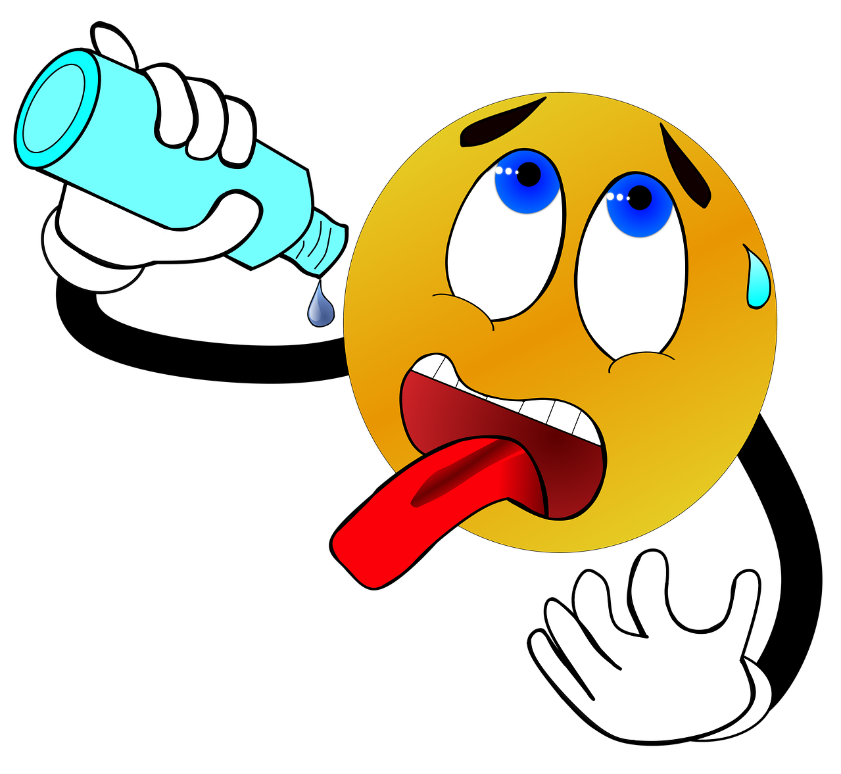What sub-optimal water intake looks like in the modern day worker
Updated at 2020-05-28 03:16:06 Posted in (Primary)General,

IS POOR WATER INTAKE CAUSING YOU SYMPTOMS?
The fact
that human beings require water to survive has definitely been known since,
well, forever. Three days without water and most of us won’t last much longer.
However, one of the main things I see in my clinic is the full-time worker
(often in an office) who comes in with chronic health issues and when asked
about their water intake – it is often well under the suggested daily intake.
Some people even go days without drinking a glass of water. Dehyration is
obviously well known, and in extreme conditions can lead to death. Yet a lot of
people still don’t get enough water. Even for myself I know there have been
days where I have been oblivious to how little water I am actually drinking,
especially when it’s busy or the weather is fairly cold so you don’t feel
thirst as easily as you do in warmer weather.
So what are some of the symptoms that can manifest
in the average full-time worker (or anyone really)? Headaches and migraines can
be common – especially if it’s combined with working at a computer for long
periods of time and especially if you are inside with air-conditioning. Other
symptoms may be having dry, chapped lips. If you find yourself reaching for lip
balm – ask yourself how much water you have had that day. If it’s been a while
since you had a glass of water - it’s time to drink up! Make a habit of
drinking water rather than reaching for the chap-stick. What else? How
about fatigue? This is extremely common in a lot of people – chronic ongoing
fatigue. As it turns out, hydration isn’t just essential to ensure we don’t die
– it’s a major key role in our body’s homeostasis (balance) on both a
physiological and cognitive level. Drinking water just to remain alive is one
thing, drinking the right amount of water to function at an optimal
level is another thing altogether.
Back in 2012 there was a study done among 20
healthy women – all who were deprived of water for just 24 hours so they could
observe changes in selected mood and physiological parameters. The symptoms
these healthy women started to experience compared to a healthy control group
included a progression of confusion and fatigue alongside a decrease in
physical strength and alertness. What was particularly interesting about these
symptoms is that two of these symptoms – fatigue and vigour (energy levels)
were not improved after water was re-introduced. Therefore if you are
someone who suffers chronic sleep issues, fatigue and often feel weak or
lethargic – check how much water you are drinking on average every day. This
may be one of the hidden causes you didn’t even consider.
Other changes in this study included less urine
output (and more concentrated urine so darker in colour), as well as an
increase in heart rate. When urine becomes less frequent but more concentrated,
it means we are not flushing toxins out of our body as successfully as we
should be. For those who are prone to things such as urinary tract infections –
this is also another reason to ensure you are getting enough water as it also
allows things like potentially harmful bacteria in the urinary tract to
increase. And for those suffering constipation – the same thing applies. If you
don’t get enough water each day, it is much harder on your digestive system to
flush out all the toxins that builds up over time. An increase in heart rate is
extremely important to take note of as something as simple as drinking an
optimal level of water daily could help reduce risk of cardiovascular issues in
the long term. Given that cardiovascular disease is one of the leading causes
of death among Australians, this is definitely worth taking note of.
There was also another study which looked at the
difference in cognition and happiness between a group of children who could
drink water compared to a group of children who had no access to water
(obviously only for a short amount of time). In this study they found that 45
minutes after drinking water, happiness levels were markedly higher in the
water group compared to the group of children not drinking water. So for those
who have children with lack of concentration, mood swings and some of the other
symptoms listed above – check how much water they are drinking each day.
Especially when they are at school or away from home – it may be as simple as
that (not always of course – but definitely worth checking).
So how much water should we be drinking? For the
average adult female – about 2-2.5L and for the average adult male – 2.5-3L.
Having said that, we are all different and therefore it may be slightly
different how much we need – however as long as it’s definitely 2 litres or
above then that’s a good starting point. Another way to know is to pay
attention to your body – look for the signs and symptoms which could be
associated with sub-optimal hydration (ie dry lips, confusion, brain fog,
fatigue etc). But the most important thing is getting into the routine of
having an optimal level of water every day, not just when you notice the
symptoms. As found in that study, by the time you feel fatigued and weak, a
glass of water won’t immediately make those symptoms improve. Obviously for
ethical reasons these studies are very short term (you can only deny water to
study participants for a small amount of time!) – and yet look at the changes
which occurred in these women after 24 hours only!
So drink up everyone – your health depends on it.
Post in category
-
Lifestyle Tips for Stress Management
Leanne Aster Updated on 2020-06-06 03:48:00
-
Foods for Respiratory Tract Conditions
Leanne Aster Updated on 2020-06-06 02:07:39
-
Easing Digestion with Soaking: nuts, seeds, grains, legumes
Leanne Aster Updated on 2020-06-05 06:01:00
-
Our bodies are our gardens; our wills are our gardeners
Leanne Aster Updated on 2020-06-05 05:48:28
-
Everyone's sick! But this is normal...... right?
Leanne Aster Updated on 2020-06-05 05:46:52



Leanne Aster